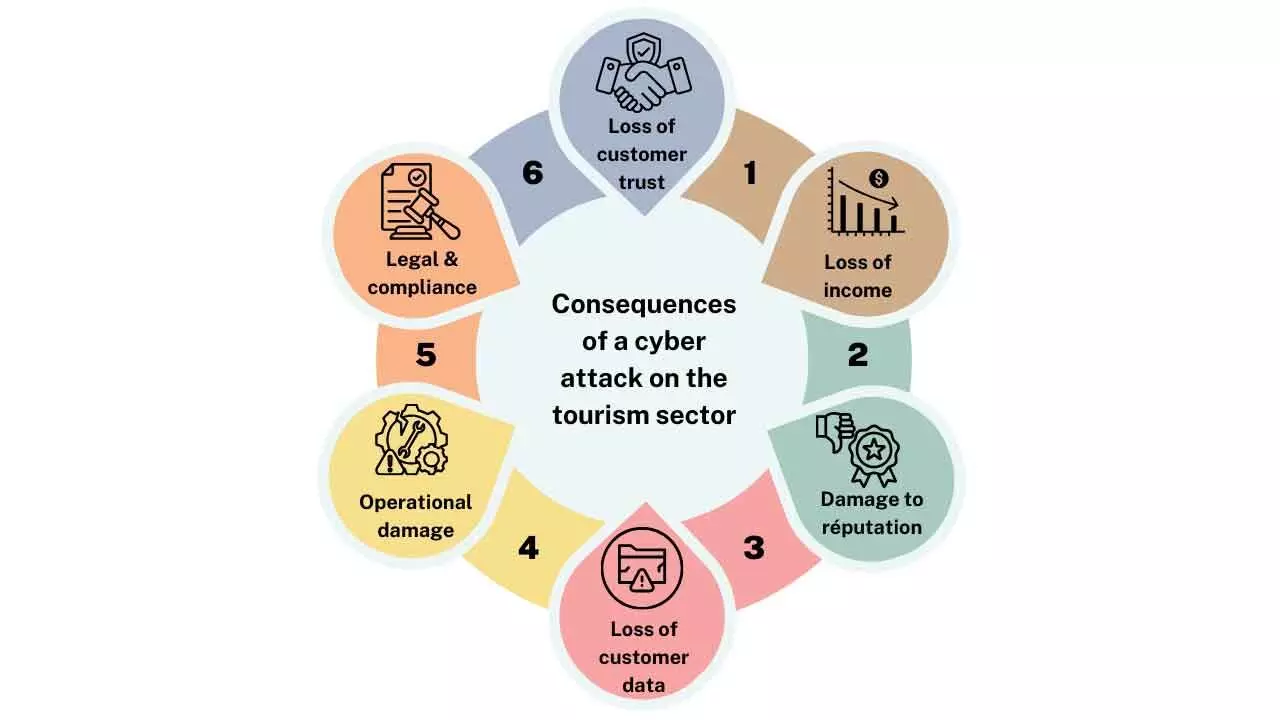Impact Of Fraud On Tourism Is Quite Worrisome
WTTC’s latest EIR shows a sector brimming with opportunities, underpinning almost 348 million jobs globally
Impact Of Fraud On Tourism Is Quite Worrisome

The World Travel & Tourism Council (WTTC) is projecting a record-breaking year for Travel & Tourism in 2024, with the sector’s global economic contribution set to reach an all-time high of $11.1 trillion.
According to the global tourism body’s 2024 Economic Impact Research (EIR), Travel & Tourism will contribute an additional $770 billion over its previous record, stamping its authority as a global economic powerhouse, generating one in every 10 dollars worldwide.
As the global sector soars past its pre-pandemic prosperity, WTTC expects 142 countries of 185 analysed will be outperforming previous national records.
In partnership with Oxford Economic, WTTC’s latest EIR showcases a sector brimming with opportunities, underpinning almost 348 million jobs globally. This represents an increase of more than 13.6 million jobs compared to its highest point in 2019.
International visitor spending is expected to come within touching distance of the 2019 peak, to reach $1.89 trillion, while domestic tourists are forecast to spend more than in any year on record to hit $5.4 trillion.
Despite economic uncertainties and geopolitical shake-ups, the Travel & Tourism sector is thriving. With an economic injection of nearly $10 trillion, the sector matched its pre-pandemic zenith, flexing its resilience and proving its critical role in the global economy.
The sector also bolstered its workforce by an additional 27.4 million, propelling the total to nearly 330 million jobs worldwide.
International spending increased by 33.1 per cent to reach $1.63 trillion, underscoring a vibrant comeback story for many countries, with domestic spending increasing by more than 18 per cent to reach almost $five trillion.
2023 set the stage, demonstrating the unwavering passion for travel, paving the way for a record-breaking year in 2024.
This growth comes despite two of the world’s biggest tourism markets lagging in terms of international visitor spend, with both the U.S. and China seeing a far slower return of international tourist spend.
Last year in the U.S., international visitor spending remained more than a quarter below the peak of 2019, while China’s visitor spend remained almost 60% down.
Julia Simpson, WTTC President & CEO, said: “Against the backdrop of uncertainty, the Travel & Tourism sector remains a global economic powerhouse.
“This isn’t just about breaking records, we’re no longer talker about a recovery – this is a story of the sector back at its best after a difficult few years, providing a significant economic boost to countries around the world and supporting millions of jobs.
“There’s a risk however, we need the U.S. and Chinese governments to support their national Travel & Tourism sectors. The U.S. and China will continue to suffer whilst other countries are seeing international visitors return much faster.”
Tourist scams are a distinct risk factor to tourists and destinations. Tourist scams are camouflaged within normal tourist-oriented activities. Scammers mislead tourists into deceptive traps by obfuscating meaning and actions. Scam victims tend to have incompetent knowledge and skills in these activities.
Fraud in the tourism sector is becoming increasingly numerous and sophisticated. Large online booking platforms, travel agencies, hotel chains and other tour operators must place cybersecurity at the heart of their strategy. Otherwise, they risk losing customers, seeing their credibility damaged and suffering a significant drop in revenue that threatens the viability of their business models.
The World Tourism Organization of the United Nations (UN Tourism) has become aware of various fraudulent schemes purporting to be from or associated with the Organization.
UN Tourism wishes to warn the public of these misleading communications that do not originate from the Organization, and are not in any way associated with its activities.
The schemes may consist of letters, sent either via e-mail, fax, regular mail, or from websites, that are made to look like they originate from UN Tourism. For example, they may contain official-looking UN Tourism stationery, including its emblem and name, and email or website addresses which include the words “World Tourism Organization” or “UN Tourism” or some similar name, or the name of a real or fictitious UN Tourism official. These are fraudulent and UN Tourism assumes no responsibility for any consequences, including, but not limited to, financial loss or identity theft or other loss or damage that may derive from such scams.
In 2020, payment fraud cost airlines ~1.2 per cent of annual revenue, or around $1 billion every year. That number has only increased as more people travel around the world—and as more people look for too-good-to-be-true deals on travel and hotels. Airline fraud attacks have a 60 per cent correlation with the average transaction amount, showing that higher transaction costs are more likely to be targeted by fraudsters.
Often, fraudsters are targeting airline tickets themselves through online travel booking platforms, looking for cheap ways to fund a vacation. Cybercriminals abuse loyalty programs, stolen credit card numbers, and other personal data to book a trip for free.

